
Workshops
Workshop 1
SICE-TCCT Joint Workshop on Reinforcement Learning and Control: New Progress in Theory and Practice
Organizer
Tielong Shen (Dalian University of Technology)
Co-Organizer
- Zhixin Liu (Vice-Director, TCCT, Chinese Academy of Sciences)
- Kang-Zhi Liu (Chiba University)
- Yuhu Wu (Dalian University of Technology)
- Fuguo Xu (Dalian University of Technology)
- Shaohua Yang (University of Macau)
Statement of Objectives
The aim of this workshop is to provide an opportunity for both researchers of control theory and industrial engineers to acquire the technological knowledge of reinforcement learning and control. Six keynote lectures will be delivered in this workshop that cover the topics including machine learning, identification and adaptive control, and applications in vehicle, power systems, CAVs, and smart manufacturing systems. Also, a student session will be organized for providing an opportunity for exchanging and presenting new research results by younger researches. We hope this workshop can provide a communication platform for the control communities from China and Japan.
Intended Audience
Industrial and academia researchers and engineers in system control and its applications.
Speakers
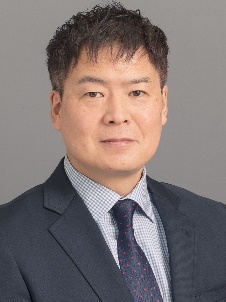
Toru Namerikawa
Keio University
Toru Namerikawa received his B.E., M.E., and Ph.D. degrees in electrical and computer engineering from Kanazawa University, Kanazawa, Japan, in 1991, 1993, and 1997, respectively. In 2009, he joined Keio University, Yokohama, Japan, where he is currently a Professor with the Department of System Design Engineering and a Director of the School of Integrated Design Engineering, Graduate School of Science and Technology. He has held visiting positions at Swiss Federal Institute of Technology in Zurich in 1998, University of California, Santa Barbara in 2001, University of Stuttgart in 2008 and Lund University in 2010. He is serving as a Co-editors-in-chief of Mechatronics, an editorial board member of IEEE Access, an associate editor of IEEE Trans. on Control Systems Technology and IET Control Theory and Applications. His main research interests are distributed and cooperative control, game theory, and their application to cyber-physical systems including mobility, security, and power networks. He received the 2014 Pioneer Technology Award from SICE Control Division and the 2017 Outstanding Paper Award from SICE, and SICE Annual Conference International Award 2023.
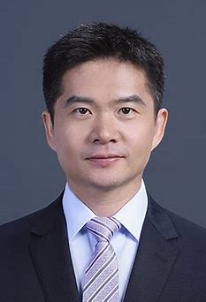
Yanlong Zhao
Chinese Academy of Sciences
Yanlong Zhao received the B.S. degree in mathematics from Shandong University, Jinan, China, in 2002, and the Ph.D. degree in systems theory from the Academy of Mathematics and Systems Science (AMSS), Chinese Academy of Sciences (CAS), Beijing, China, in 2007. Since 2007, he has been with the AMSS, CAS, where he is currently a Professor. His research interests include identification and control of quantized systems, and modeling of communication systems, etc. He served as Vice President of Asian Control Association and Vice President of IEEE CSS Beijing Chapter, and is now Vice General Secretary of Chinese Association of Automation (CAA), Chair of Technical Committee on Control Theory (TCCT), CAA. He has been a Deputy Editor-in-Chief of Journal of Systems and Science and Complexity, an Associate Editor of Automatica, SIAM Journal on Control and Optimization and IEEE Transactions on Systems, Man and Cybernetics.
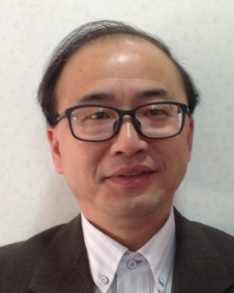
Kang-Zhi Liu
Chiba University
Kang-Zhi Liu graduated from Northwestern Polytechnical University in 1984 and obtained a Ph.D. from Chiba University in 1991. Since then, he joined Chiba University and is now a full professor at the Department of Electrical and Electronic Engineering. His research interests include robust control, machine learning and their applications to industrial systems. Dr. Liu was awarded four academic awards by SICE and is a Fellow of SICE.
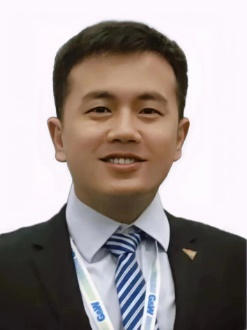
Hongxun Hui
University of Macau
Hongxun Hui is an Assistant Professor with the State Key Laboratory of Internet of Things for Smart City, University of Macau. Previously, he received a B. Eng. degree in 2015 and Ph.D. degree in 2020 both from the College of Electrical Engineering in Zhejiang University. F rom 2018 to 2019, he was a visiting scholar at the Advanced Research Institute in Virginia Tech and CURENT Center in University of Tennessee. His research interests are in the optimization and control of smart grid, Internet of Things technologies for smart energy, and energy economics. He has authored/co-authored 1 international book, more than 60 SCI journal papers, and 16 issued patents. Three of the papers were selected as the ESI Highly Cited Papers (Top 1%). As principal investigator (PI), he has led 7 national, special administrative region, and provincial-level projects, including National Science Foundation of China (NSFC), National Key Research and Development Program of China (sub-project), Macao Science and Technology Development Fund (FDCT), Natural Science Foundation of Guangdong Province of China, etc.
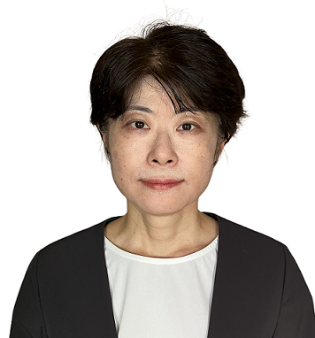
Mitsue Sato
Toshiba
Mitsue Sato graduated from the master’s course at the Graduate School of Information Science at Ochanomizu University in 1998. She joined Toshiba Corporation in the same year, where she was responsible for software development and technical sales for emiconductors and consumer electronics. Since 2021, she has been working in the Instrumentation Technology Department of her current company. She is currently a manager, commercializing instrumentation cloud services.
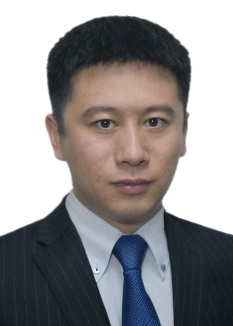
Fuguo Xu
Dalian University of Technology
Fuguo Xu is a full professor in the School of Mechanical Engineering, Dalian University of Technology (DUT). He received the Ph.D. degree in mechanical engineering from Sophia University in 2019. Before joining DUT, he has worked as a Postdoctoral Fellow in Sophia University from October 2019 to October 2021, an Assistant Professor in Tokyo City University from November 2021 to March 2023, and an Associate Professor in Chiba University from April 2023 to February 2025. His research interests include optimal control, model predictive control, mean field game and their applications in automotive powertrain system. He is serving as the editoral member of SAE International Journal of Electrified Vehicles and Unmanned Systems.
Program
13:30–15:30 Keynote Session I
| 13:30–14:00 Keynote J-1 |
“Safe Hierarchical Control of CAVs” Toru Namerikawa, Keio University, Japan |
|---|---|
| 14:00–14:30 Keynote C-1 |
“Adaptive Identification and Control of Quantized Systems” Yanlong Zhao, Chinese Academy of Sciences, Beijing, China |
| 14:30–15:00 Keynote J-2 |
“Compensation for Periodic Disturbances Beyond Control bandwidth:
A Machine Learning Approach” Kang-Zhi Liu, Chiba University, Japan |
| 15:00–15:30 Keynote C-2 |
“Optimization and Control Problems in Low-carbon Power Systems
Considering the Regulation of Large-scale Distributed Resources” Hongxun Hui, State Key Laboratory of Internet of Things for Smart City, University of Macau |
15:30–15:45 Coffee break
15:45–16:45 Keynote Session II
| 15:45–16:15 Keynote J-3 |
“Smart Manufacturing Realized by Instrumentation Cloud Services
and Next-Generation Integrated Control System” Mitsue Sato, Toshiba, Japan |
|---|---|
| 16:15–16:45 Keynote C-3 |
“Machine Learning -based Approaches for Energy Optimization of HEVs” Fuguo Xu, Dalian University of Technology, Dalian, China |
16:45–17:30 Student Session
-
“Resilient Control for Distributed Flexible Loads in Smart Grid Considering Cyber-Security”
Shaohua Yang, University of Macau -
“A practical case study for Stakleberge-mean-field game”
Yuexi Zhang, Dalian University of Technology, China -
“RL approach to V2x-based driver’s demand prediction”
Yuanhao Cui, Dalian University of Technology, China
Workshop 2
Implementing an FPGA-based Digital Servo by Upgrading an Open-Source Product to the Newest FPGA Board: Challenges and Considerations
Organizer
Seigen Nakasone (Okinawa Institute of Science and Technology)
Statement of Objectives
Quantum physics experiments use and rely heavily on control instruments such as digital servos. To implement an FPGA-based high-speed low-noise digital servo, knowledges are necessary in control theories, signal processing, analog and digital electronics (hardware), FPGA programming (firmware), API and GUI developing (software). Good examples will lower the learning curve.
We have upgraded a digital servo open-sourced by NIST (the National Institute of Standards and Technology at the U.S.), migrated it from using Xilinx Spartan-6 board to Artix-7 board. Some modifications have been applied to its hardware and firmware to solve the compatibility issues. Software (API and GUI) is rewritten in Python for our special needs.
This workshop shares experience of the migration. The difficulties, pitfalls, considerations, and solutions will be introduced. What can be learn from the experience also applies to designing and implementing a new instrument.
Intended Audience
Control researchers and engineers, especially who want to design and implement instruments for real world production.
Speaker
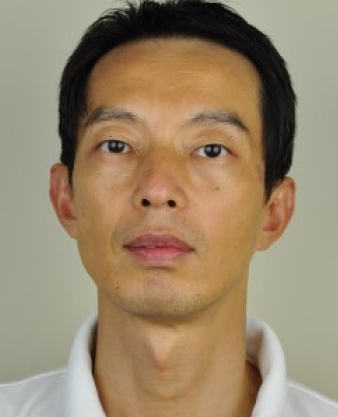
Seigen Nakasone
Okinawa Institute of Science and Technology
Seigen Nakasone received the B.E. in Automation Control and M.E. degrees in Computer Science and Technology from Tsinghua University. Experienced several different careers, now working as a research unit technician in Experimental Quantum Information Physics Unit, OIST, developing instruments to support the quantum physics experiments.
Program
- Introduction to the digital servo open-sourced by NIST
- Overview
- ADC channels
- DAC channels
- Controller
- Flexibility in Use (Programmable Settings)
- Needs Requirements for Upgrading
- XEM6010 (Xilinx Spartan6 based) end of life
- XEM7010 (Xilinx Artix7 based) incompatible
- Issues to deal with
- Hardware and firmware modifications
- PCB modifications
- Firmware modifications
- PCB re-modifications (to match the new firmware)
- Software
- API
- GUI
- Bug locating and fixing tips
- Application example (Project “Ion trap cavity lock”)
- Bring home messages